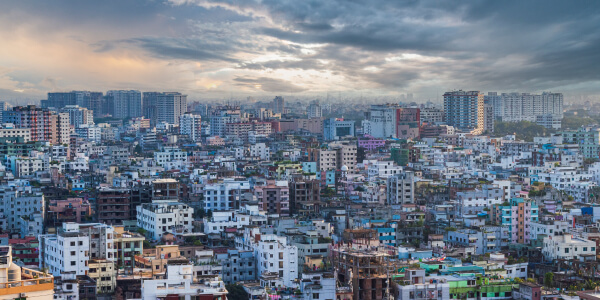Pumping and Dredging Project Consultation in Bangladesh | Pump and Slurry
In Bangladesh, pumping, dredging, and dewatering services are vital for sustaining its primary industries, encompassing cotton, textiles and clothing, jute, tea, paper, cement, fertilizer, sugar, and light engineering. These services are crucial in facilitating various industrial operations across these sectors. Pumping systems are essential for transporting raw materials, managing water supply, and circulating fluids during manufacturing processes. In the textile industry, for instance, pumping ensures the efficient movement of dyes and chemicals required for fabric production. Dredging is necessary for maintaining waterways used for transportation and irrigation, especially vital for industries like jute and tea, which rely on adequate water resources for cultivation. Dewatering services are crucial for managing wastewater generated during manufacturing processes, ensuring compliance with environmental regulations, and minimizing pollution. Overall, pumping, dredging, and dewatering services contribute significantly to Bangladesh’s primary industries’ efficiency, productivity, and sustainability, driving economic growth and development.
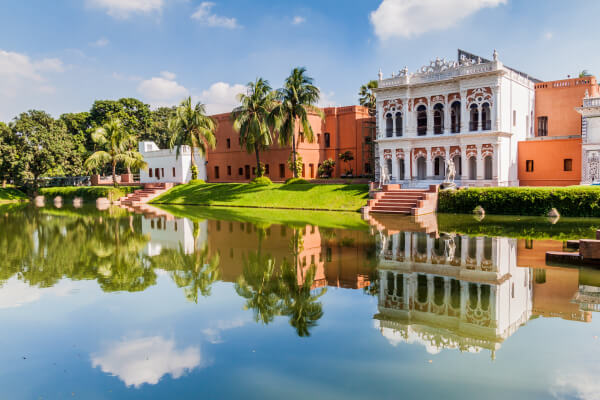
Pumping and Dredging Project Consultation in Bangladesh
Pumping and dredging projects in Bangladesh are instrumental in the nation’s industrial and agricultural sectors. Slurry pumping facilitates the movement of sediment, sand, and minerals, essential for various industries like textiles, cement, and light engineering. In agriculture, dredging projects help maintain irrigation channels and waterways crucial for rice cultivation, a staple crop in Bangladesh. Moreover, dredging initiatives ensure the navigability of rivers and ports, supporting transportation and trade activities vital for economic growth. Thus, pumping and dredging projects in Bangladesh play a pivotal role in sustaining industrial production and agricultural productivity while fostering economic development and prosperity.
The sales and rentals of slurry pumps and dredging equipment in Bangladesh are essential for enabling pumping and dredging projects across the country. Access to high-quality equipment through sales or rentals allows businesses to undertake projects efficiently and cost-effectively. Renting equipment provides flexibility and cost-efficiency, particularly for smaller enterprises or short-term projects. Conversely, purchasing equipment supports long-term projects and contributes to building robust industrial and agricultural infrastructure. Ensuring a well-developed market for sales and rentals of slurry pumps and dredging equipment is crucial for sustaining the momentum of pumping and dredging projects in Bangladesh, effectively supporting the nation’s economic and agricultural objectives.
Our Services
Consulting Services
Pumping & Slurry Transport
Dredging Consulting
Dewatering
Equipment Sales & Rentals
Equipment Rental
Equipment for Sale
Customization Services
Industries in Bangladesh Requiring Slurry Pumping, Dredging, and Dewatering
Pulp and Paper
In Bangladesh’s pulp and paper industry, efficient pumping, dredging, and dewatering are vital for water supply, transportation, and waste management. Pumping systems facilitate water movement necessary for pulp production processes, supporting optimal fiber extraction and paper manufacturing conditions. Dredging is essential for maintaining waterways and transporting raw materials like wood and finished paper products, facilitating the industry’s logistics. Dewatering processes aid in managing wastewater generated during pulp and paper manufacturing, ensuring compliance with environmental regulations and minimizing pollution.
Cotton, Textiles, and Clothing
Efficient pumping, dredging, and dewatering are crucial in Bangladesh’s cotton, textiles, and clothing industries for managing water supply, wastewater treatment, and fabric production. Pumping systems ensure the smooth movement of dyes, chemicals, and water for fabric manufacturing processes. Dredging is necessary for maintaining waterways used for transportation of raw materials and finished products, supporting the industry’s logistics. Dewatering processes aid in managing wastewater generated during fabric dyeing and finishing processes, ensuring compliance with environmental regulations and minimizing pollution.
Jute
In Bangladesh’s jute industry, efficient pumping, dredging, and dewatering are essential for managing water supply, irrigation, and transportation. Pumping systems facilitate the water movement necessary for jute cultivation, ensuring optimal growth conditions. Dredging is crucial for maintaining irrigation canals and waterways for transporting raw jute fibers, supporting the industry’s logistics. Dewatering processes aid in managing excess water in jute fields during the monsoon season, ensuring proper drainage and preventing waterlogging.
Tea
Efficient pumping, dredging, and dewatering are vital in Bangladesh’s tea industry for managing irrigation, water supply, and transportation. Pumping systems ensure efficient water distribution for tea cultivation, supporting optimal growth conditions. Dredging is essential for maintaining irrigation channels and waterways for transporting tea leaves, facilitating the industry’s logistics. Dewatering processes aid in managing excess water in tea gardens during the monsoon season, ensuring proper drainage and preventing waterlogging.
Cement
In Bangladesh’s cement industry, efficient pumping, dredging, and dewatering are crucial for water supply, transportation, and waste management. Pumping systems facilitate water movement necessary for cement production, ensuring optimal mixing and curing conditions. Dredging is essential for maintaining waterways for transporting raw materials and finished cement products, supporting the industry’s logistics. Dewatering processes aid in managing wastewater generated during cement manufacturing processes, ensuring compliance with environmental regulations and minimizing pollution.
Light Engineering
Efficient pumping, dredging, and dewatering are essential in Bangladesh’s light engineering industry for managing water supply, transportation, and waste management. Pumping systems ensure the efficient water movement necessary for various manufacturing processes, supporting optimal production conditions. Dredging is crucial for maintaining waterways for transporting raw materials and finished products, facilitating the industry’s logistics. Dewatering processes aid in managing wastewater generated during manufacturing processes, ensuring compliance with environmental regulations and minimizing pollution.
Our Presence in the Country
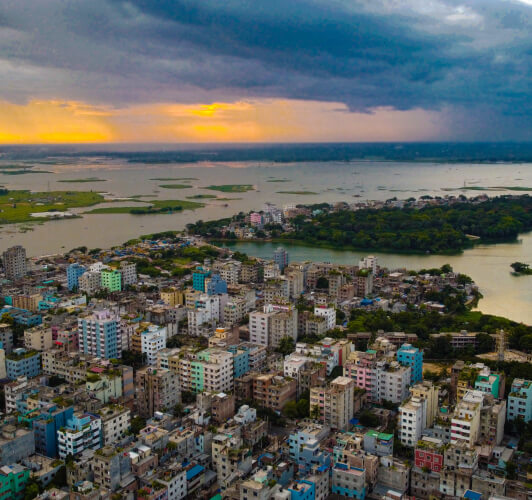
Dhaka
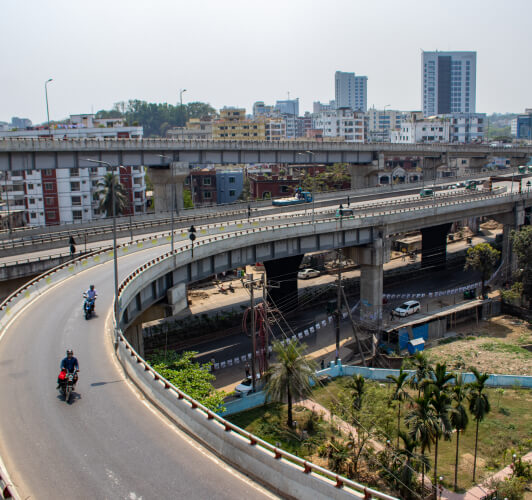
Chittagong
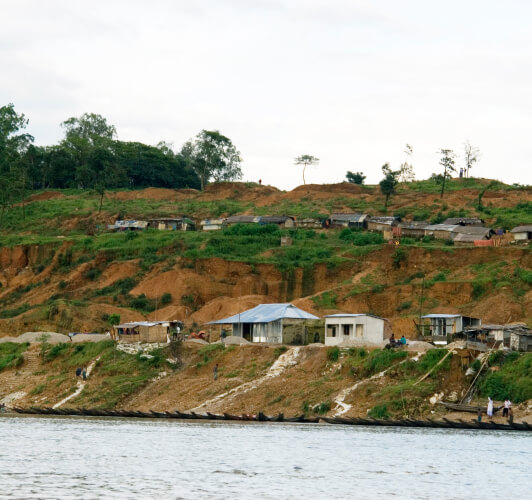
Sylhet
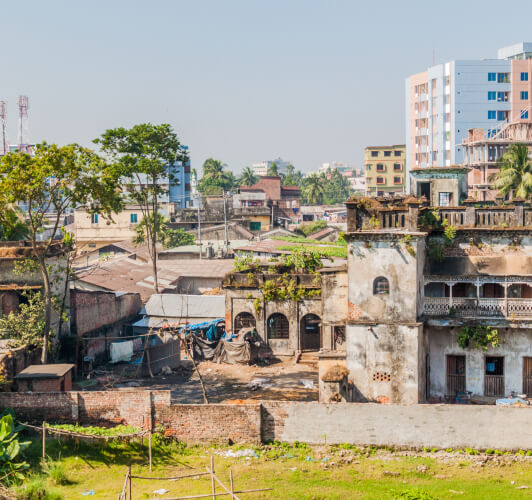
Khulna

Rajshahi
Conclusion
Bangladesh’s diverse industries, encompassing textiles, jute, tea, cement, and light engineering, heavily rely on the indispensable services provided by pumping and dredging projects. These initiatives are paramount in facilitating material transportation, waterway maintenance, and wastewater management, ensuring seamless industrial operations while minimizing environmental impact. Furthermore, pumping and dredging projects play a pivotal role in supporting agricultural activities such as jute and tea cultivation by guaranteeing the functionality of irrigation and drainage systems. Bangladesh can further fortify its industrial infrastructure, bolster agricultural productivity, and foster economic growth by prioritizing the development of pumping and dredging projects. Hence, investing in pumping and dredging projects in Bangladesh remains imperative for industrial progress and environmental sustainability, promising a prosperous future for the nation and its populace.
